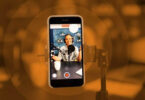There was a time when simply hanging out with your family watching a movie or having dinnertime was quality time. Today, clients need a robust digital strategy to survive in a world full of smartphones and tablets where it’s getting harder to connect to something that doesn’t require a charger. Remember those times when we used to speak to each other instead of gazing down at our phone to see who texted us? It brings to mind the importance of family time which allowed us to bond and pass on traditions to the next generation – like our favorite childhood games.
Technology Is Not Helping Us Grow
For those of us who grew up before the days of the Internet, hand-clapping games ruled the playground. Whether they were played outside during recess or on a long bus ride during a field trip, it was the #1 way to pass the time. In fact, few things says childhood quite like a good hand-clapping game like “Miss Mary Mack, Mack, Mack” or “Pat-a-cake, Pat-a-cake.” And, who can forget about teasing your lovebird friends by singing “Sitting in a tree, K-I-S-S-I-N-G?” Oh, those fun playground days, right? Now? Not so much.
In a high-tech, rushed, and over-stimulated society, young children don’t have to entertain themselves with hand-clapping games anymore. Why sit around on a sticky jungle gym playing “Marinero” when you can dominate Candy Crush on your mom’s phone? However, technology affects a child’ overall growth, cites a report; children who spend more time on tablets and smartphones have lower attention spans, reduced cognitive skills, and suffer slower physical development, the report reads.
Learn From Those Taking A Break
It’s no secret that Millennials are technologically-driven and that advertisers have to be smart, savvy, and witty to even capture their attention, but what about incoming generations – those who are learning to type before picking up a pencil to write? These kids aren’t spending time on the playground – much less learning how to spell ‘kissing’ through hand-clapping games.
Companies like Univision – the largest Spanish-language network in the U.S. – are trying to solve this, pushing parents to pledge 15 minutes a day to their little ones, whether it’s reading them a book or teaching them their favorite hand-clap game of “Mariposa.” The hope is that these childhood diversions will remain part of the children’s identity and culture for the future.
What Advertisers Can Do About It
If you think about it, marketers and advertisers are reaching through the tablet screen and playing “Pat-a-cake” with their consumer, gently guiding them to their product by showing them creative and engaging content. Even though we’re moving away from traditional styles of marketing, that doesn’t mean we can’t find fun ways to interact with consumers. Why not take the creativity back to the playground, and focus on appealing to conscious consumers who value outside playtime, hand-clapping games, and all that comes with being a kid.
Adeline Cruz-Phillips, Account Director
Elizabeth Guevara, Copywriting Intern










